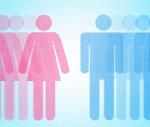You are here
Women early risers may have lower breast cancer risk
By Reuters - Jul 13,2019 - Last updated at Jul 13,2019

Photo courtesy of wordpress.com
Women who like to wake up early every day may be less likely to develop breast cancer than women who prefer to sleep in, a recent study suggests.
While previous studies have linked inconsistent sleep schedules and getting too much rest to an increased risk of breast cancer, researchers haven’t looked as often at how much women’s wake-up time might impact this risk, researchers note in the BMJ.
For the current analysis, researchers analysed genetic variants associated with three sleep traits: sleep duration, insomnia, and a so-called morning or evening chronotype, referring to early or late risers. They looked at data on 180,216 women in the UK Biobank study and 228,951 women in the Breast Cancer Association Consortium (BCAC) study.
In the UK Biobank study, among every 100 women who were early risers, there was one fewer case of breast cancer than among every 100 women who were late risers. But there wasn’t a clear connection between breast cancer and sleep duration or insomnia.
In the BCAC group, women who woke up early also had a lower risk of breast cancer. In this study, sleeping more than the recommended seven to eight hours a night was associated an increased risk — 19 per cent for every extra hour.
“The findings of a protective effect of morning preference on breast cancer risk in our study are consistent with previous research highlighting a role for night shift work in the development of breast cancer,” said Rebecca Richmond, lead study author and a researcher at the University of Bristol in the UK.
“One particular mechanism which might explain the link, known as the `light-at-night’ hypothesis, involves the suppression of melatonin levels in women exposed to artificial night at light, which in turn influences various hormonal pathways which might increase risk of breast cancer,” Richmond said by e-mail.
But women shouldn’t rush to reset their alarm clocks to lower their breast cancer risk, Richmond said.
“Our main findings were based on women’s reported morning or evening preference, rather than actually whether they get up earlier or later in the day,” Richmond noted.
Another drawback is that participants were all of European ancestry, and results might differ for women from other racial and ethnic groups.
Most women who get breast cancer develop these tumours after age 50, and they may be more prone to these tumours with a family history, certain genetic mutations, dense breast tissue, early puberty or late menopause, according to the US Centres for Disease Control and Prevention.
While women can’t control any of those risk factors, there are other risk factors related to lifestyle that can be altered, according to the CDC. These include being physically inactive, overweight, drinking alcohol, having a first pregnancy after age 30, not breastfeeding, and taking some forms of hormonal birth control pills and hormone replacement therapy for menopause symptoms.
Sleep might also increase the risk, along with smoking, exposure to certain chemicals, and hormone changes caused by night shift work, according to the CDC.
The current analysis wasn’t a controlled experiment designed to prove that specific sleep habits might directly cause breast cancer.
It’s also not clear from the study whether women’s preferred early or late wake-up time (conformed) with their work hours, said Dr Eva Schernhammer, author of an accompanying editorial and a researcher at the Medical University of Vienna and Harvard Medical School in Boston. Being an early riser might make women’s wake up time better match a typical nine to five workday that is common for many jobs.
“The majority of women are neither morning or evening types, but somewhere in between on that spectrum, hence, any potential risks are likely to affect a relatively small proportion of women,” Schernhammer said by email. “However, sleep and work timing might be more important than previously thought.”
Related Articles
TOKYO — If you find you just cannot spring out of bed on time every morning, you may be able to blame it on your genes, a new scientif
PARIS — People who tend to stay up late are not more likely to die younger than early risers — as long as they don’t use those longer nights
Women who eat a lot of fat, particularly saturated fat, may be at higher risk of certain types of breast cancer, new research suggests.
















